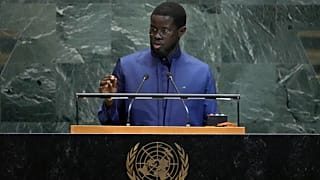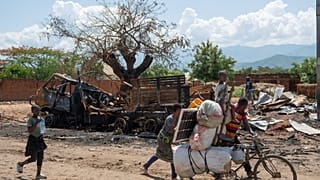Morocco
Gabon and Equatorial Guinea have agreed on a compromise aimed at submitting to the International Court of Justice the border dispute that has poisoned their relations for nearly forty years.
The bone of contention between the two neighbors of Central Africa is the island of Mbanié and several islands located in the Gulf of Guinea reputed to be rich in oil, both countries claim right over the property.
The agreement was signed on Tuesday on the margins of COP22 in Marrakech, Morocco by Gabonese President Ali Bongo and his Equatorial Guinean counterpart Teodoro Obiang, in the presence of Ban Ki Moon, Secretary – General of the United Nations.
Ban Ki-moon witnesses signing of border dispute agreement b/w Gabon & Equatorial-Guinea https://t.co/6WIIUgs3UX on margins of #COP22 pic.twitter.com/3OlEhmLc9f
— UN Spokesperson (@UN_Spokesperson) November 15, 2016
“I commend President Obiang Nguema Mbasogo [of Equatorial Guinea] and President Bongo Ondimba [of the Gabonese Republic] for demonstrating true political leadership, courage and wisdom in reaching this mutually acceptable agreement, in accordance with the spirit and letter of the United Nations Charter,” Ban said in his opening remarks at the signing ceremony.
“Today’s event is a testimony to the determination of your countries to move with a common vision to strengthen and respect the international rule of law, and contribute to lasting peace and good neighborly relations,” he added.
Before now, the two oil producers had over the years agreed to jointly exploit the area until a solution was found. It is unclear at this stage what the resolutions entails.
AFP











01:40
UN Finds dire conditions on first visit to Sudan’s el-Fasher since its fall
02:43
AFCON 2025: Group F battles intensify as qualification beckons
01:33
UN Security Council divided over Israel’s recognition of Somaliland
02:01
UN Chief urges world leaders to choose peace over war in new year message
00:45
AFCON 2025: Cameroon 'spiritually ready' to face Gabon in first match
01:14
CAR deploys armed forces and MINUSCA to secure elections